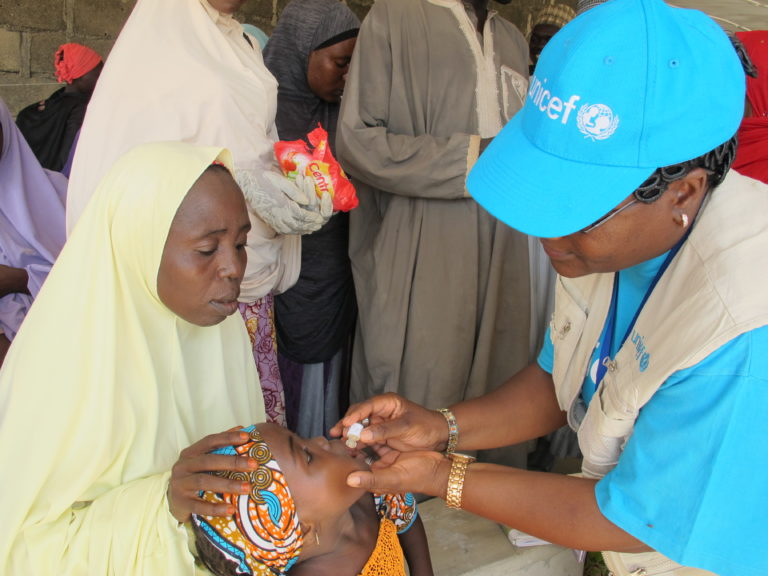The Katsina State First Lady, Zulaihat Radda, has revealed that cultural norms and lack of support pose barriers to low state immunisation.
Mrs. Radda made this disclosure at the health exercise initiated by her in collaboration with UNICEF to ensure immunisation coverage in the state.
UNICEF revealed their expected target for immunisation of children in the state should exceed above 45 per cent coverage in 2024, acknowledging the aid of Majalisan Rigakafi men groups.
The UNICEF’s Kano Field Office Chief, Mr. Rahama Farah, noted this on Wednesday at the programme launch, titled “Male Involvement in Polio and Routine Immunisation,’ at the Banquet Hall, Government House, Katsina.
Highlighting the programme aims, representing Mr. Farah, the agency’s Health Specialist, Dr. Saudat Basheer explained the need for gender inclusion for improvement of immunisation coverage and global polio eradication in Katsina.”Our children should not be dying of diseases that are easily preventable with vaccines, and today, fathers and men have come together to help us achieve the goal of zero dose and polio-free Katsina.
Mrs. Radda explained that this development is a transformative strategy that enhances immunisation and builds healthier communities as it plays a critical role among the primary healthcare services within the state.
While emphasising gender inclusiveness and recognition, she said, “Over the years, we have made remarkable progress in improving access to healthcare. However, some of our challenges remain low immunisation, misconceptions about the vaccines, and limited access to primary healthcare services, which continue to threaten the health and well-being of our people, especially women and children.
Mrs. Radda stressed the need to overcome cultural norms and lack of male support hindering immunisation efforts, urging for the adoption of a community-driven approach to address these barriers and ensure immunisation success.
As a gender mainstreaming platform, she noted that women, responsible for their families’ health, face challenges due to limited decision-making power.



